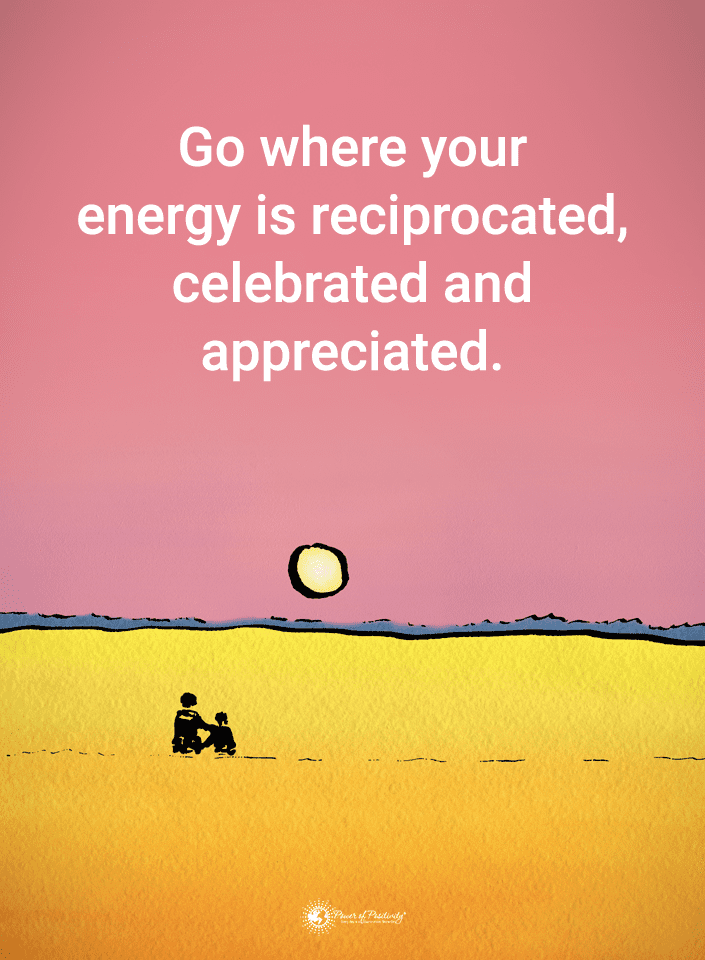Energy is the currency of productivity and well-being in today’s world. Yet, amid our daily tasks, commitments, and aspirations, many unknowingly indulge in habits that deplete this vital resource. Like silent energy vampires, these routines and patterns suck away our vitality, leaving us wondering why, by day’s end, we feel more drained than fulfilled.
If there was ever a time when we needed to bring our maximum energy to everyday life, it’s present-day. After all, when the World Health Organization – pretty much the de facto international body on anything global health – calls stress a “worldwide epidemic,” it’s time to pay attention.
Stress management is a skill that requires us to be cognizant of our bodies. Unfortunately, not nearly enough of us play an active role in managing our stress levels. This is a critical error; we all know what stress can do to our energy levels.
In this article, we’re going to talk about fifteen habits that drain your energy, as well as share some cutting-edge stress management tips. Try implementing one or more of these tips into your daily life and see your life change!
15 Habits That Deplete Your Energy Reserves
Know these fifteen habits that will quickly drain your personal energy levels.

1 – Bad diet can zap your energy
Aside from water, food is undoubtedly the most important source of energy. Every part of our body, from the brain and heart, the liver and stomach, to our muscles and nerves, needs nutrients to survive. Our stomach digests the food that is eventually broken down into glucose and pumped through our bloodstream. This glucose comprises a critical component of mental and physical energy.
Energy management tip: First, make sure that you eat enough. You should be getting a minimum of 2,000 calories daily under normal circumstances. Second, prioritize healthy and nutritious (read: energy-producing) foods. Examples: lean meats, nuts, seeds, dark leafy green vegetables, citrus fruits, soybeans, whole grains, and low-fat dairy.
2 – Multitasking
Multitasking is officially a stupid and ineffective way to get work done. First, multitasking – for all intents and purposes – doesn’t exist (unless you count walking while chewing gum or some other monotonous task). Second, multitasking depletes your brain’s energy reserves by forcing it into “task switching.” This is far from the living, breathing task-juggling machine that “multitaskers” try and make themselves out to be.
Energy management tip: This one is straightforward. Do one thing at a time. When the bottom-up circuitry of our brain tries to interfere, redirect your attention back onto the task at hand.
3 – Complaining
Is it easy to go off on a complaint-infused tangent in today’s world? You bet it is – and it can even feel good for a little while. But, according to a study published in the Journal of Applied Psychology, complaining even once can send you down a steep, slippery slope of negative thinking. Moreover, this emotional hijack comes at a high energy cost.
Energy management tip: Learn to express legitimate discontentment healthily by getting to the root of the problem and working towards a solution. You’ll find that redirecting your attention towards something positive is both rewarding and far less taxing on energy levels.
4 – Dehydration
While you probably don’t need some study to tell you that dehydration can torpedo energy levels, here we go anyway. According to researchers at the University of Connecticut’s Human Performance Laboratory, a seemingly insignificant “1.5 percent water loss in normal (body) water volume” – or mild dehydration – can handicap a person’s ability to think clearly. Interestingly, the study notes “it (doesn’t) matter if a person … walked for forty minutes on a treadmill or was sitting at rest” – the damaging effects of dehydration on energy levels and cognitive performance were the same.
Energy management tip: Most experts agree that eight, 8-ounce glasses of water per day is optimal (more if you are physically active.) An easy way to check your hydration levels is to check the color of your urine. If it’s anything other than clear, you are probably not drinking enough.
5 – Iron deficiency
Per the World Health Organization, iron deficiency is the most prevalent nutrient disorder in the world. An iron shortage in the body means insufficient hemoglobin can be produced, depriving your muscles, tissues, and organs of oxygen. As a result, your body and mind can feel sluggish and run down.
Energy management tip: Vegans and vegetarians are especially prone to iron deficiency, as the mineral is the most abundant in fish, meat, and poultry. Therefore, it is necessary to acquire iron supplementation or a food substitute (e.g., iron-fortified cereal.) The RDA for iron between the ages of 18 and 50 is 8 mg for men and 18 for women. Over the age of 50, it is 8 mg across the board. Women who are pregnant should get a minimum of 27 mg daily.
6 – Not enough exercise could drain your energy reserves
Check this: researchers say regular, low-intensity exercise may increase energy by up to 20 percent while decreasing fatigue by 65 percent! Is any other explanation needed here?!
Energy management tip: Again, low-intensity exercise is far better than no exercise. Get out for a 45-minute walk, ride the bike, or take up a hobby that requires energy expenditure.

7 – Staring at your screen
The blue light emitted from cell phone screens messes with your body’s circadian rhythm (sleep/wake cycle), making falling and staying asleep more difficult. Of course, anything less than a full night’s sleep is counterproductive to energy levels.
Energy management tip: If you have a legitimate need to use your phone late into the night, consider installing a “night light” for your cell. Some Android phones are even coming with a built-in blue light blocker installed.
8 – Poor posture may drain your energy
More people may be guilty of bad posture than anything else on this list. Poor posture drains your energy levels by making you counterbalance uneven weight across your upper and lower body. In other words, your body must constantly adjust to compensate for your lousy form. Moreover, slouching puts disproportionate pressure on your back and spine, which can sap your energy.
Energy management tip: Learn to sit up straight. When you walk, try to imagine a parallel line running from the tip of your head and neck down through your spine and lower legs. You’ll never go back when you feel that extra energy jolt you get.
9 – Perfectionism
People who are perfectionists are often inflexible, fear failure, and have an unhealthy need for control. They attempt to overcome these feelings of inadequacy by trying to make everything just right. Unfortunately, such an approach to life is both unrealistic and exhausting. Research shows that perfectionist tendencies are linked to both chronic stress and burnout.
Energy management tip: The first step is to recognize procrastination in yourself. Contrary to popular belief, perfectionists aren’t always “squared away.” For example, many adults coping with perfectionism due to their deeply-rooted fears of failure are chronic procrastinators. Poor grades and work performance may continue if one doesn’t take a proactive approach – usually entailing things like meditation, deep-breathing techniques, visualization, and positive self-talk.
10 – Afternoon caffeine
That cup of joe to get through the afternoon slump is so lovely. Unfortunately, according to a research team from Michigan, caffeine intake within six hours of bedtime affects both sleep time and quality.
Energy management tip: Instead of indulging in a cup (or three) of java, try taking a short nap of 20 to 30 minutes. Hey, Google does afternoon naps, so there must be something to them!
11 – A messy desk can drain your energy
No messy desk research can pass the Einstein test. Perhaps history’s greatest genius had a famously unorganized workspace (putting it nicely). But, according to Princeton professor Sabine Kastner, clutter within our visual range competes with attention resources, sabotaging our energy and cognitive resources over time.
Energy management tip: What can it hurt to try a tidy desk?
12 – A thyroid condition
A defective thyroid can manifest all sorts of symptoms, including low energy. Hypothyroidism, an underactive thyroid, may also bring dry skin, increased sensitivity to cold, sluggishness, and weight gain. Consider speaking with a healthcare professional if you experience more than one of these symptoms.
Energy management tip: Ensure you get enough iron (see #5). Iron deficiency is one of the leading causes – if not the leading cause – of thyroid problems.
13 – Cabin fever
Staying cooped up indoors isn’t conducive to high energy levels. It turns out that we humans are nature creatures – and by making us work in crappy offices – our energy suffers. (Gee, who’d have thunk?)
Energy management tip: Per a series of studies published in the Journal of Environmental Psychology, spending just 20 minutes in nature boosts feelings of vitality. Richard Ryan, lead author and professor of psychology at the University of Rochester, says, “Nature is fuel for the soul. Often when we feel depleted, we reach for a cup of coffee … a better way to get energized is to connect with nature.”
Well said, good Sir!
14 – Saying “yes” too often
Some people find it difficult to say “No” to people. People wouldn’t take advantage of such noble generosity in a perfect world. In our world, however, per research out of Michigan State University, people with issues with the n-word are more at risk for work-related burnout and decreased productivity.
Energy management tip: The most straightforward way to overcome this problem is to overcome the wrong view that saying no is rude. When said politely, there’s nothing wrong with a polite, “I’m sorry, but no.”
15 – Nightcaps can drain your energy the next day
After work, relaxing with a cold beer or a nice glass of wine can feel heavenly. That is until your body tries to initiate and sustain sleep. Even small amounts of alcohol – a glass of beer or wine, for instance – are enough to impact sleep quality adversely.
Energy management tip: Save imbibing for the weekends when possible. For work-related functions and other celebratory events, try sticking with no more than one to two servings of alcohol.
 Final Thoughts of Reversing the Habits That Drain Your Energy
Final Thoughts of Reversing the Habits That Drain Your Energy
Taking care of oneself is paramount to ensuring we can care for others and our responsibilities. It’s akin to the directive given by flight attendants before takeoff: in the event of an emergency, always secure your oxygen mask before assisting others. By ensuring our well-being and energy reserves are maintained, we’re safeguarding our health and enhancing our capacity to be present, effective, and supportive in all areas of our lives. By recognizing and adjusting the habits that drain us, we can reclaim our energy and approach each day with renewed vigor and purpose.

















